Although these units were written for California’s science standards prior to NGSS, they contain engaging resources (including visual aids, readings, activities, and maps) that are still relevant and, if thoughtfully integrated, can help support lessons and units of study focused on California’s NGSS.
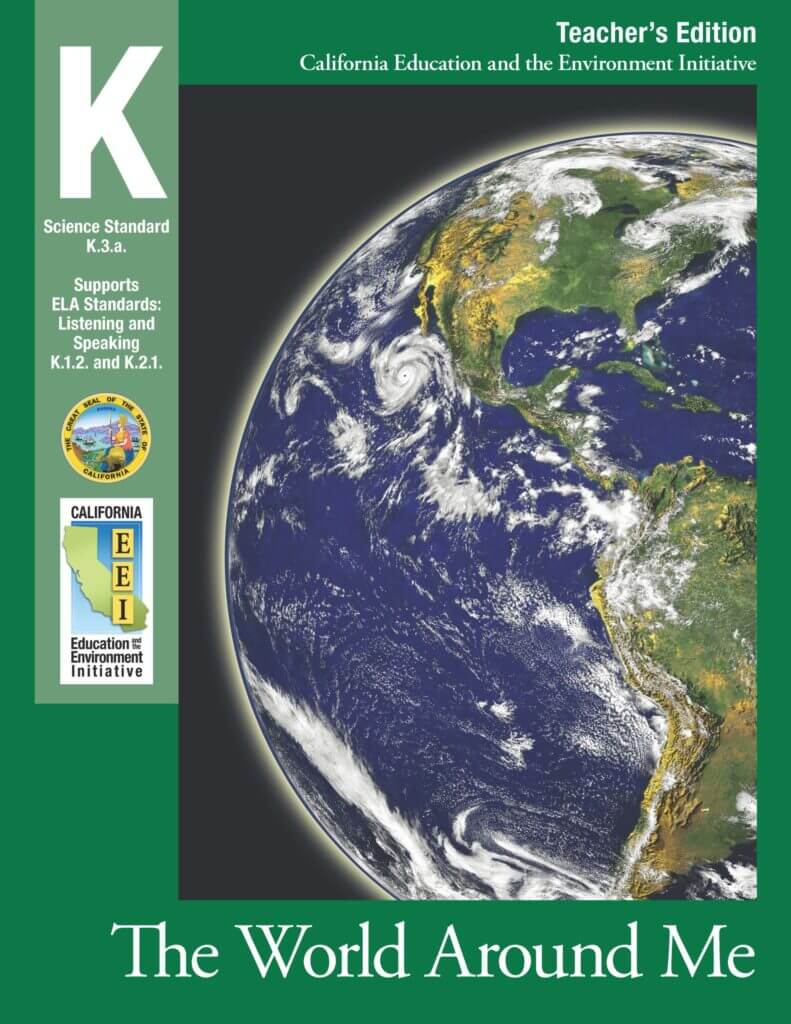
Students learn that Earth is made up of land, air, and water. They also learn the characteristics of several ecosystems and relate those characteristics to their local environment.
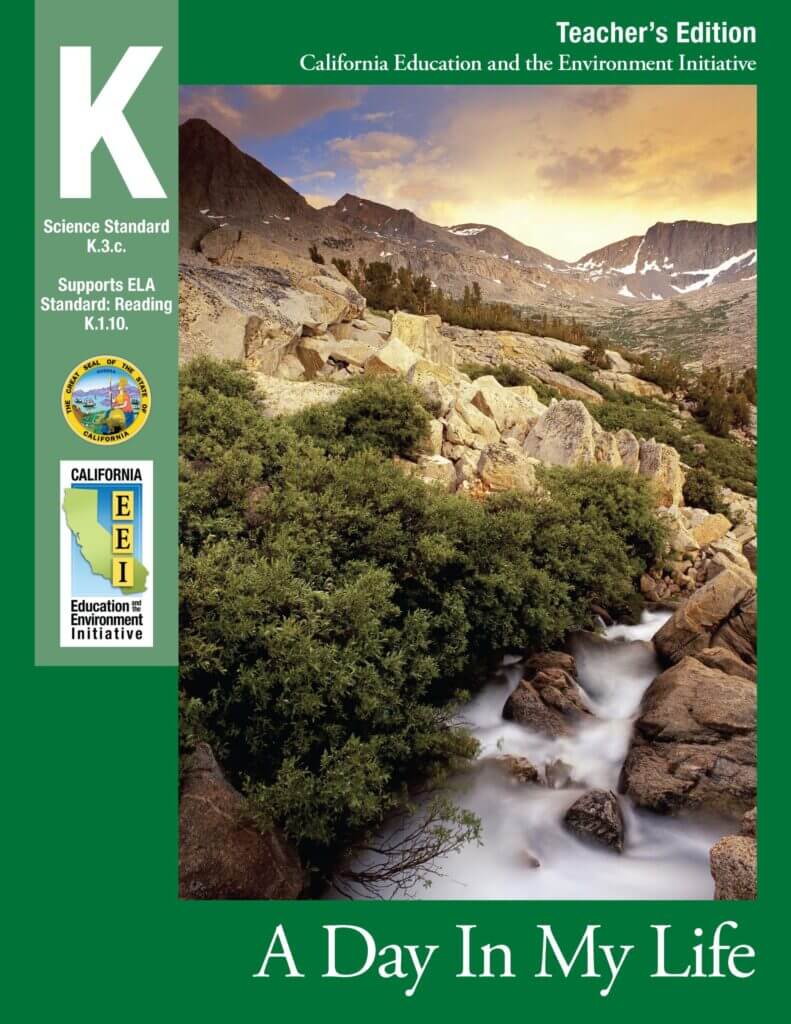
Water, along with soil, air, plant, and animal resources, are fundamentally important for life.
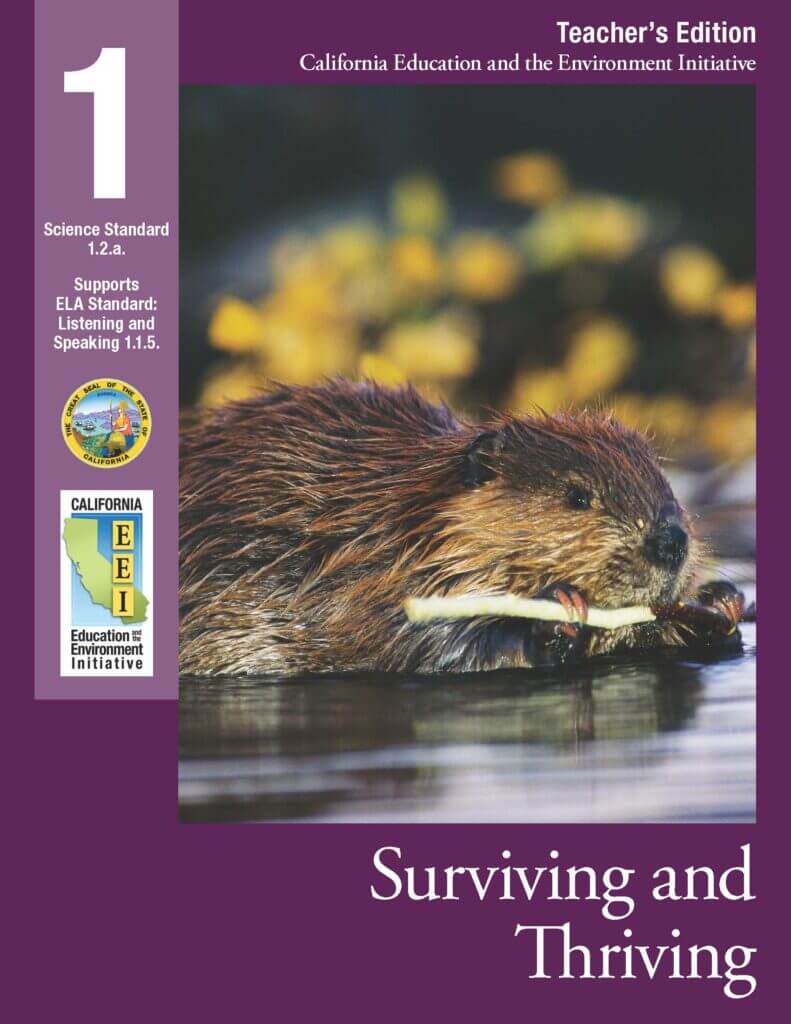
Students discover that there must be a good fit between the physical features of plants and animals and the characteristics of the different environments in which they live.
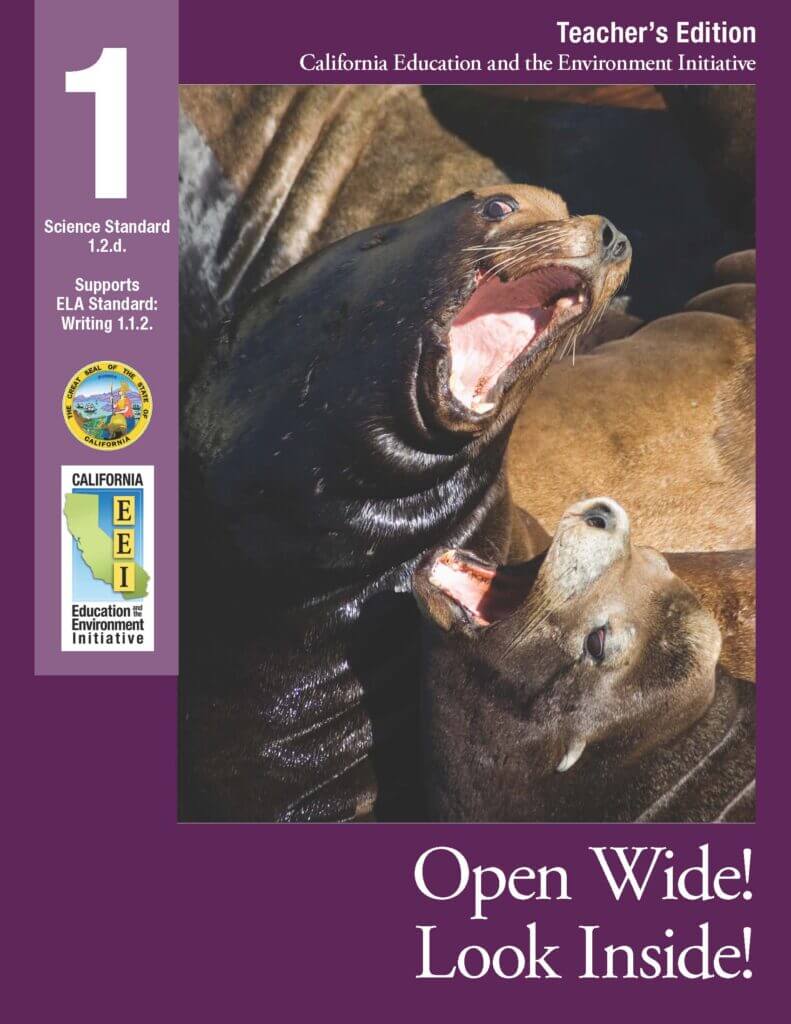
Animals meet their needs for food within their habitat in different ways. Human activities influence habitats and affect animals’ food supplies.
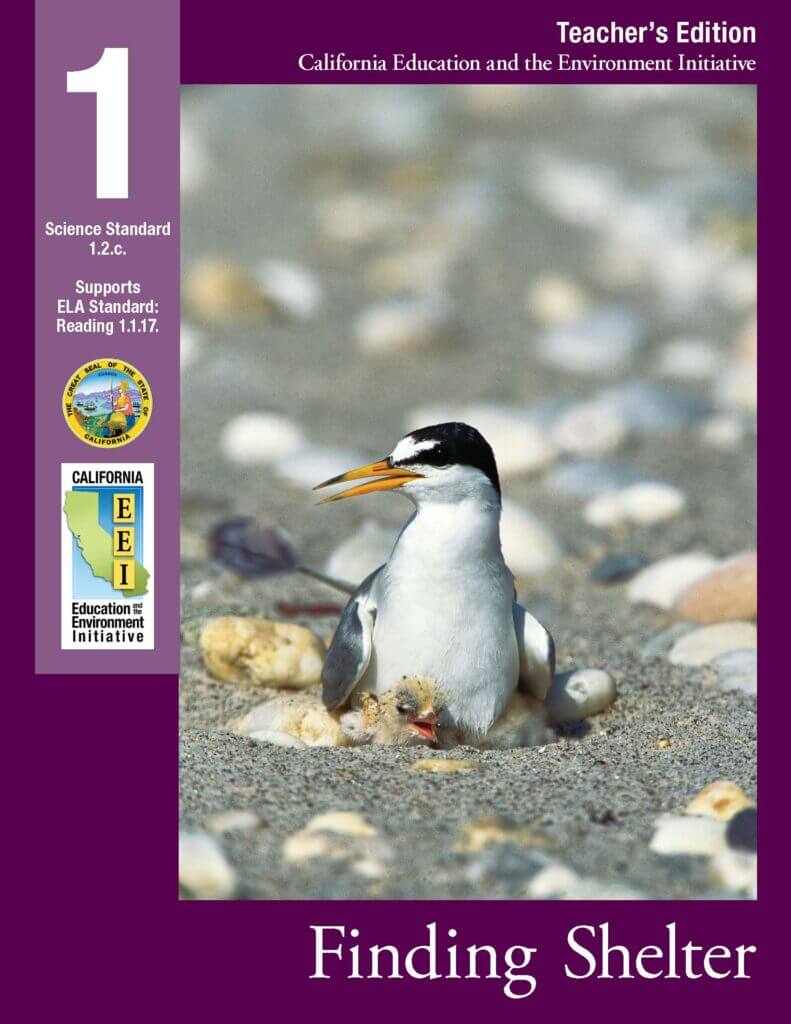
Healthy ecosystems benefit humans, as well as the plants and animals living there.
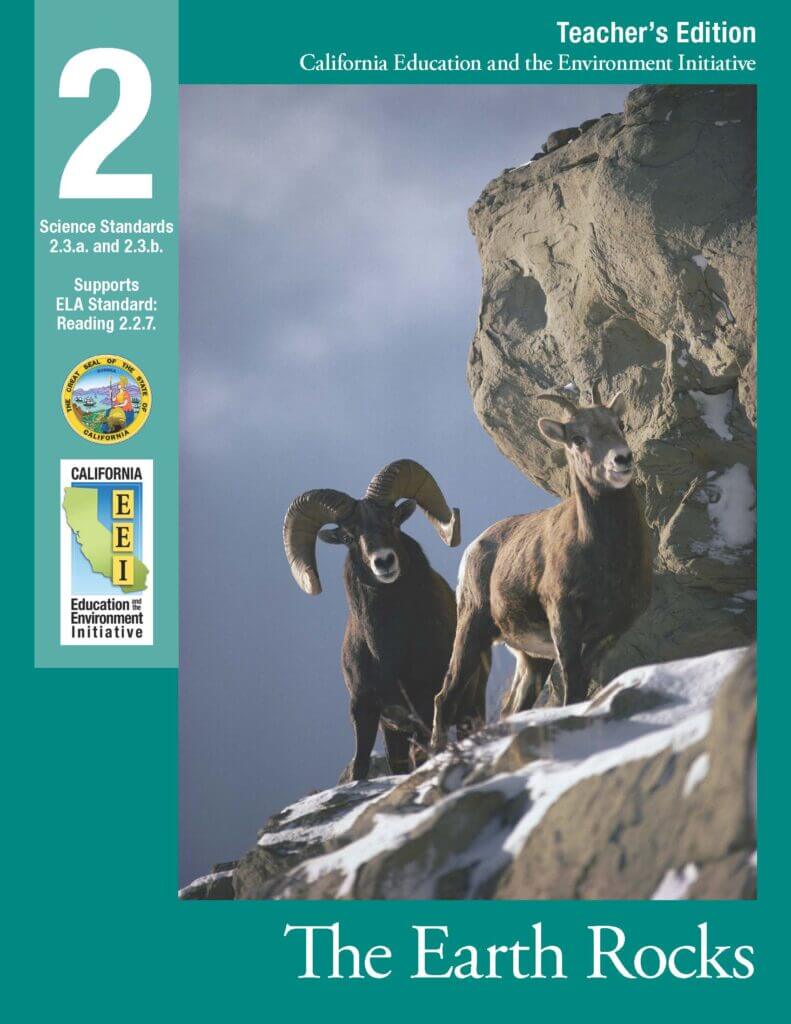
Students learn the properties of rocks and minerals, how rock types and mineral content may change, and how they influence the way rocks and minerals function in natural and human systems.
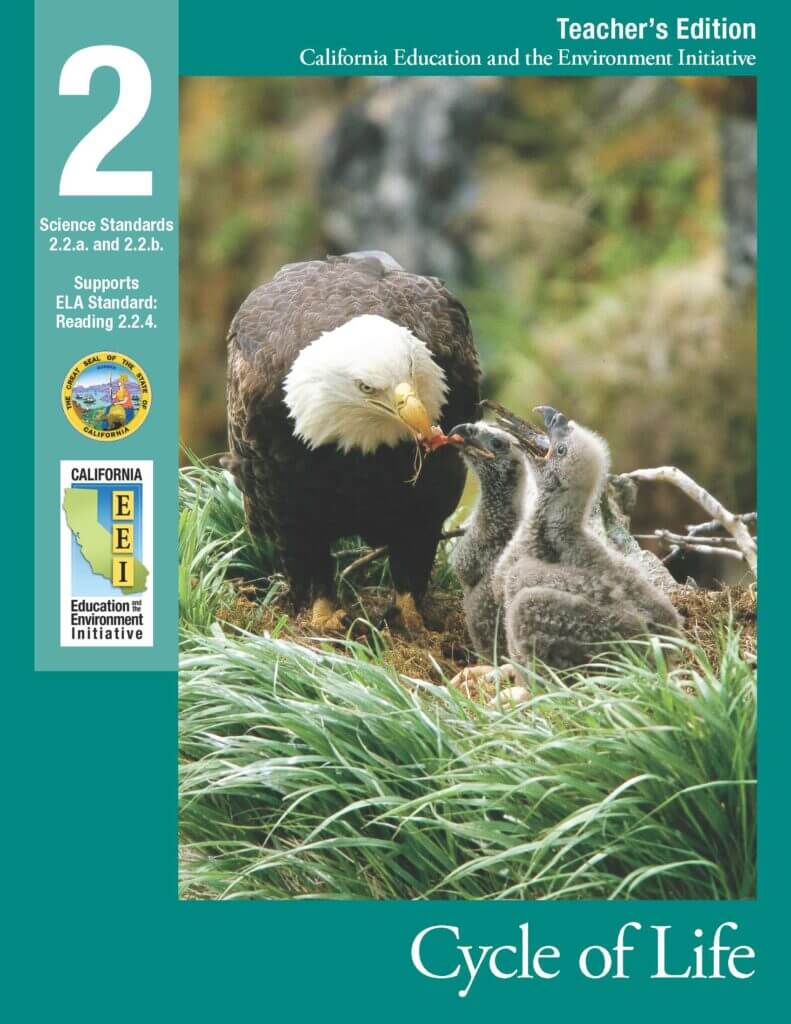
Environmental factors affect the ability of flowering plants to grow and reproduce.
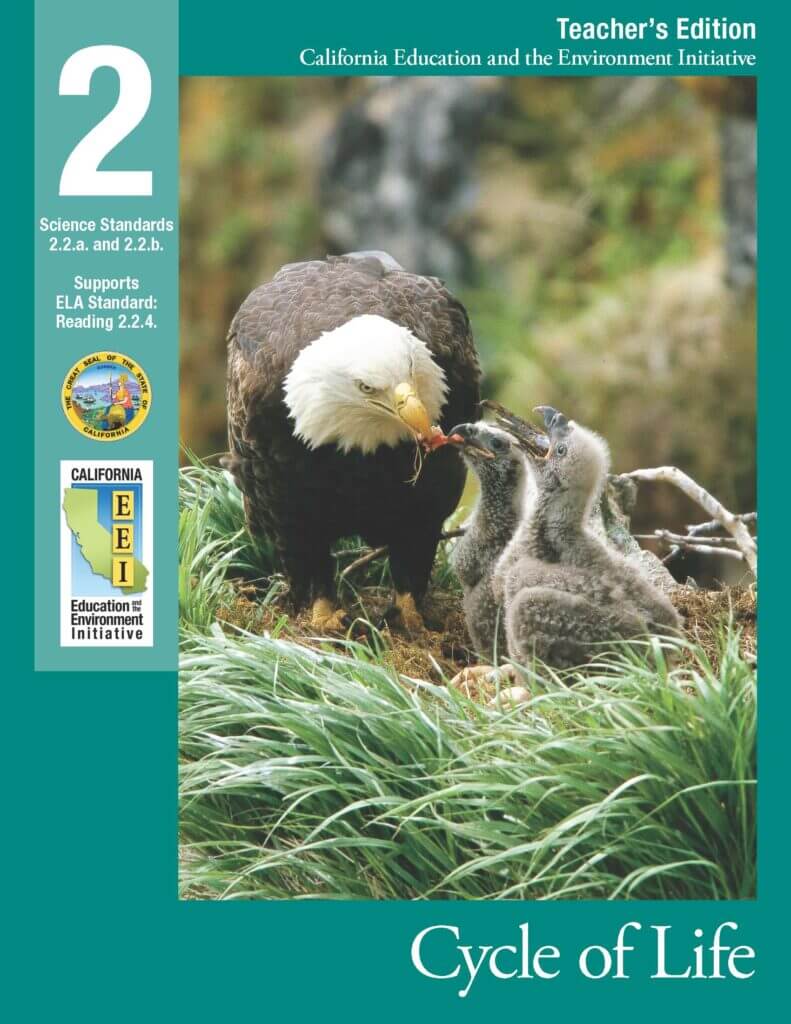
Students learn why life cycles are vital to the survival of all species.
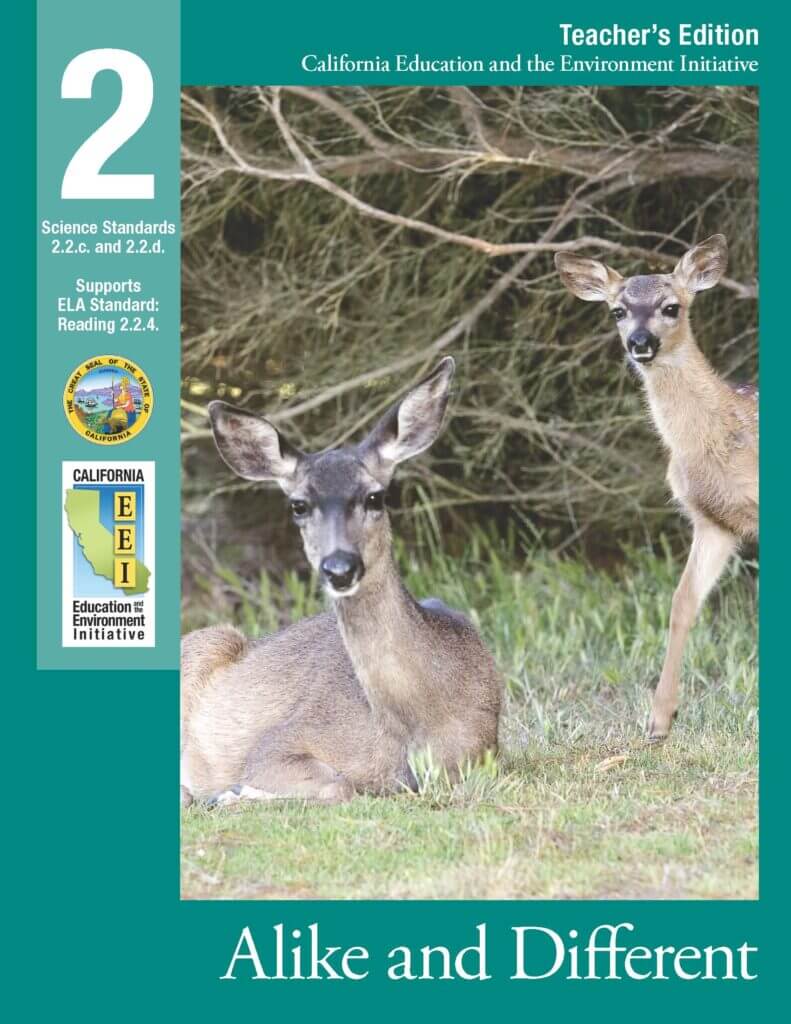
Students are introduced to the idea of adaptation and variation.
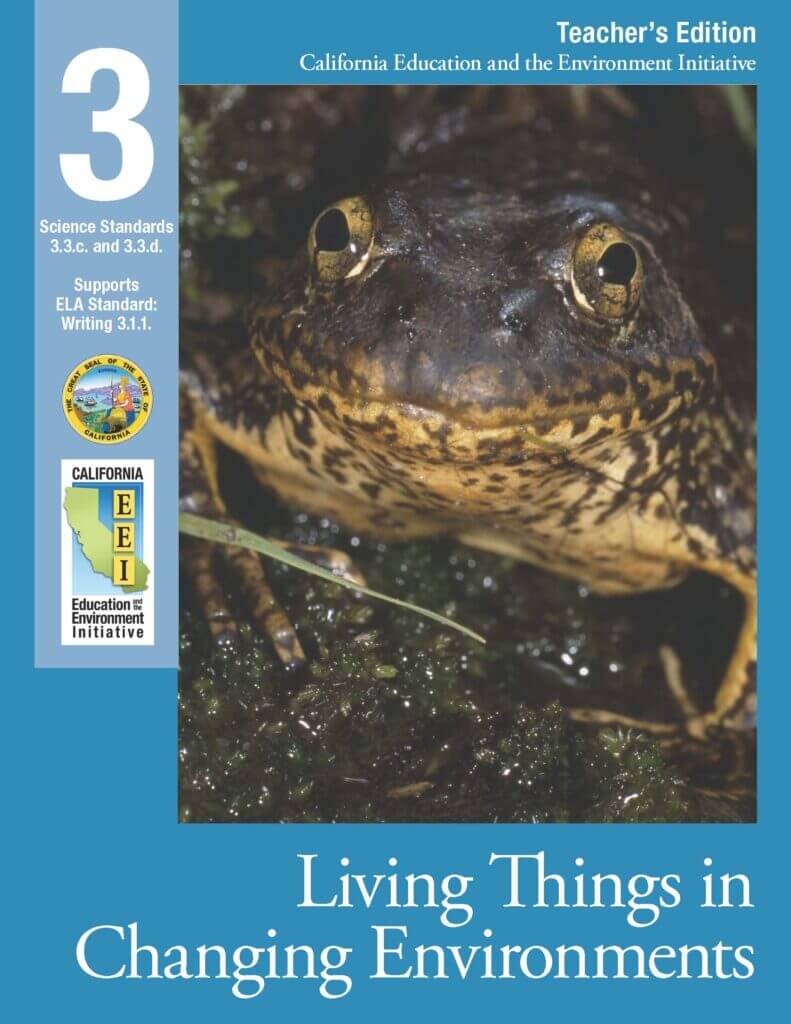
Living things (including humans) can cause changes in the environments in which they live.
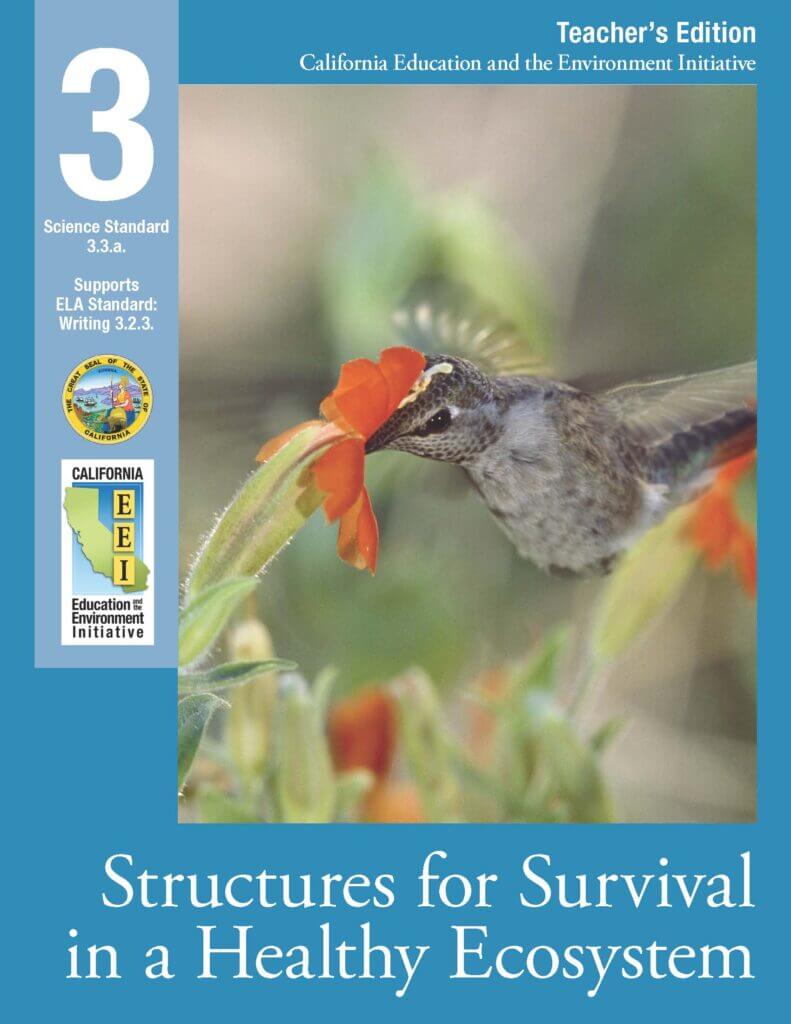
A healthy natural system is essential to help plants and animals survive the process of growth and reproduction.
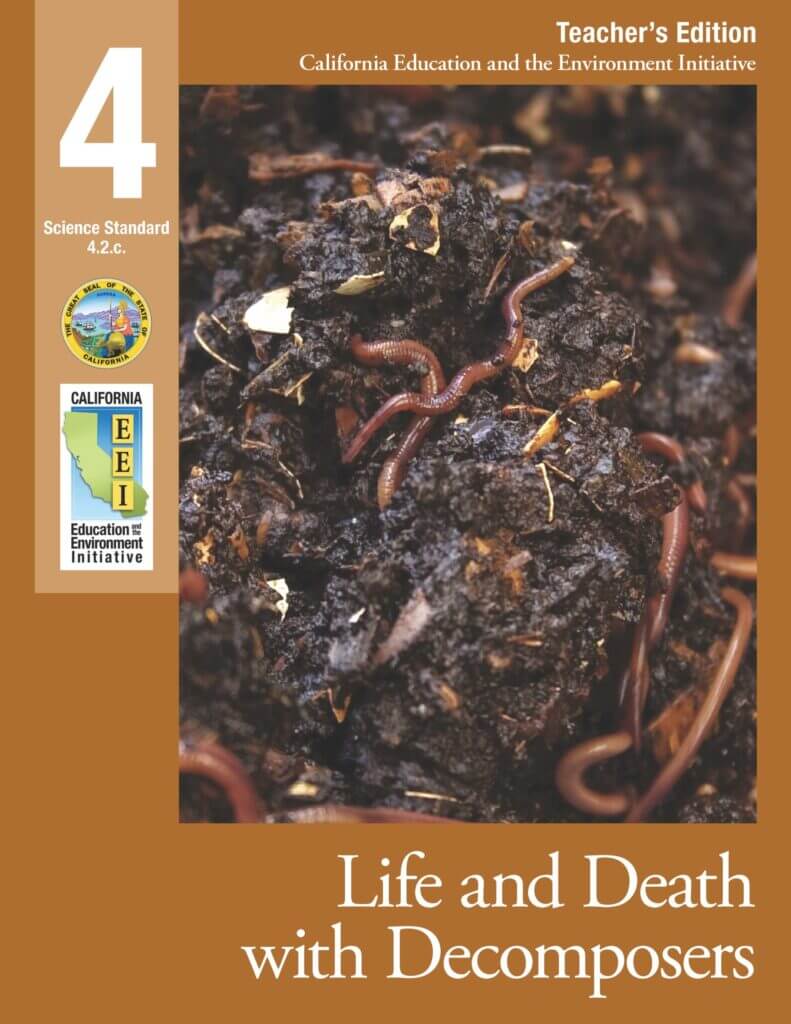
This unit focuses on decomposers and their role in breaking down matter.
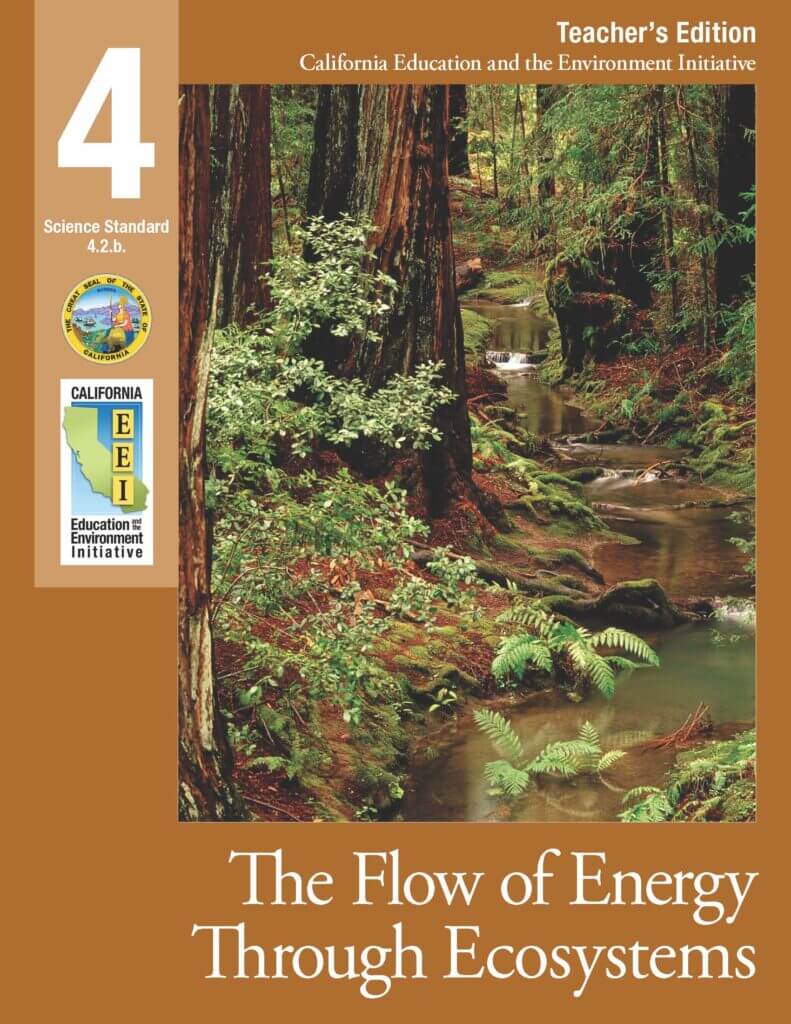
Living organisms depend on one another and on their environment for survival.
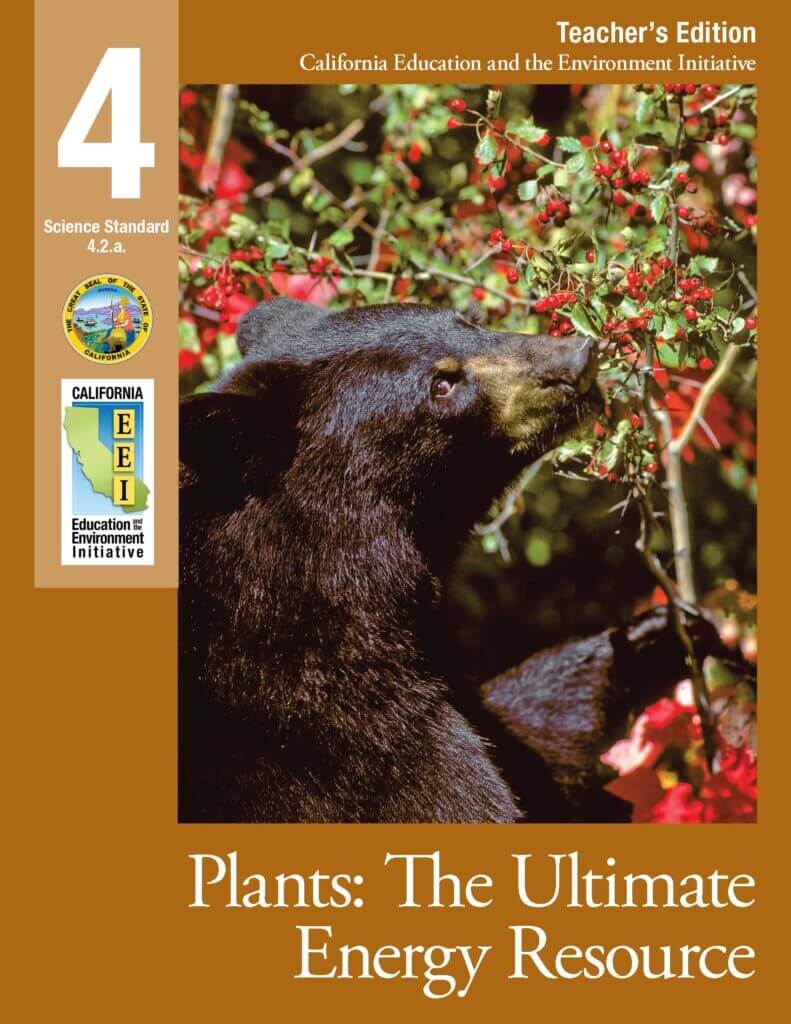
Plants are the primary source of matter and energy entering most food chains.
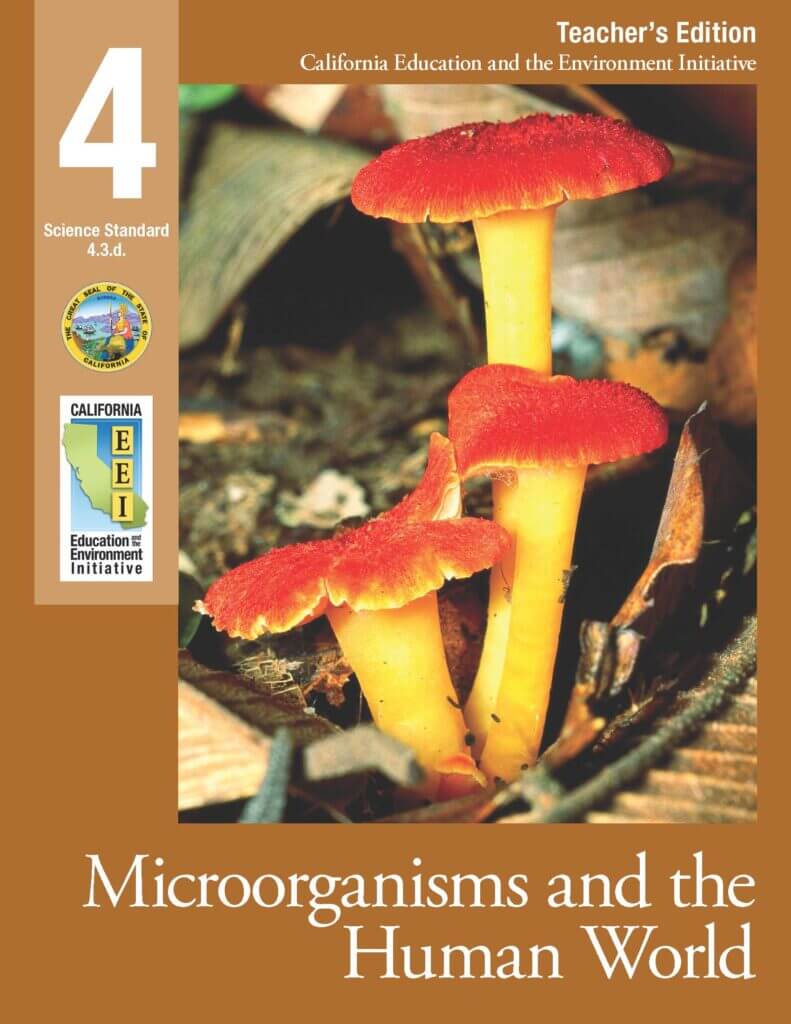
Microorganisms are a major component of many processes and cycles.
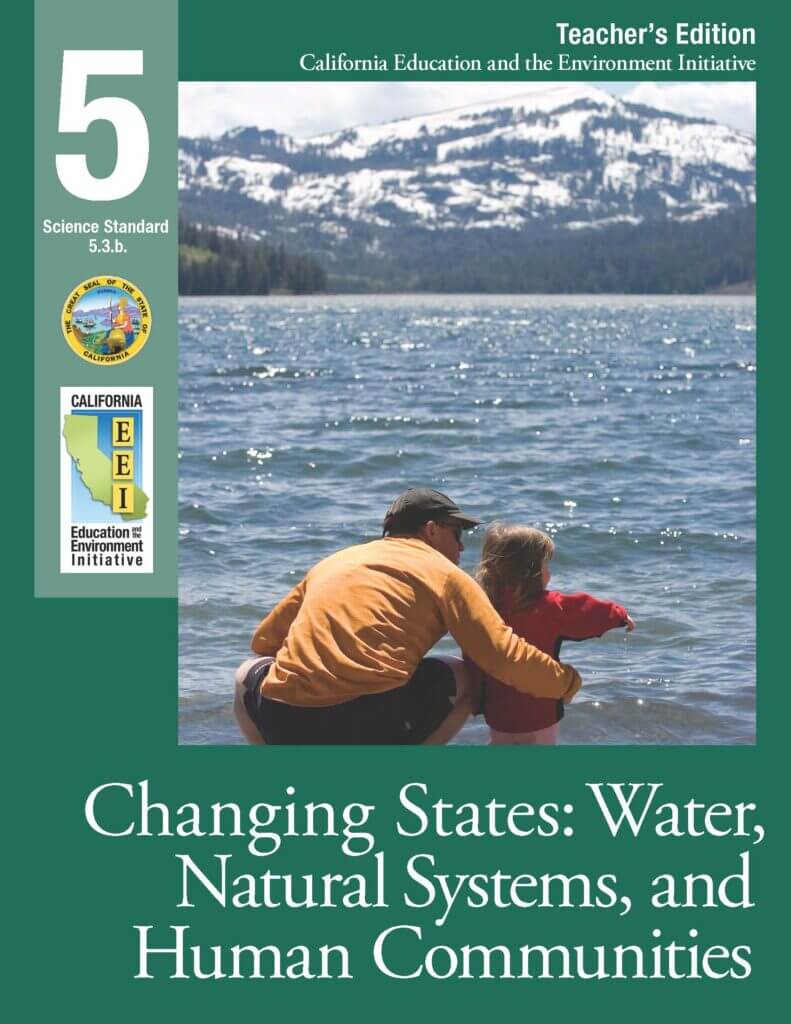
Water moves through the water cycle in two primary ways, evaporation and condensation. This movement of water is connected to humans and human communities.
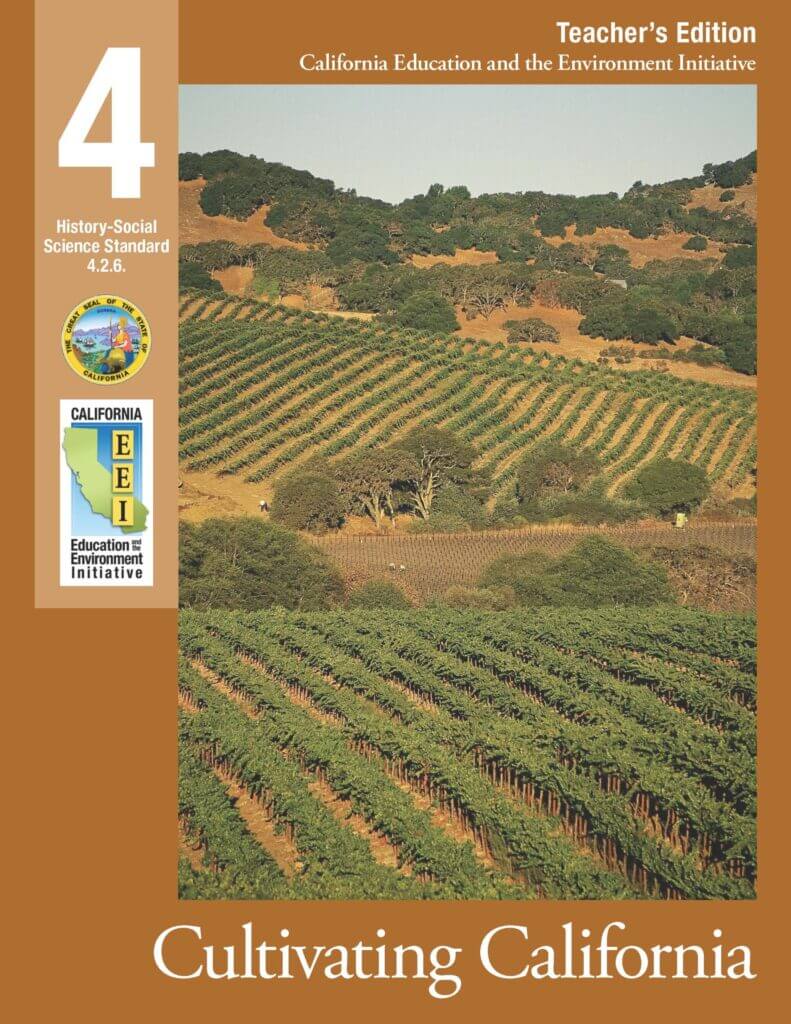
Students learn about the water cycle, availability of fresh water, salinity and density of water, and the interaction of humans with freshwater, coastal, and marine ecosystems.
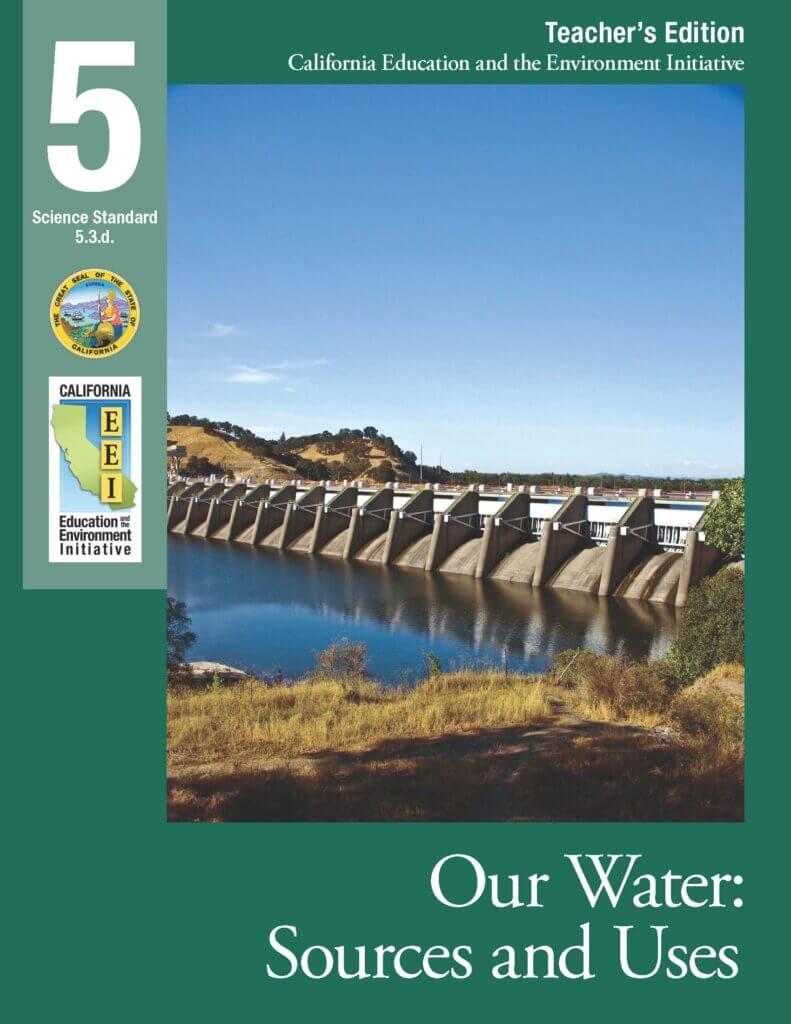
Students identify sources of fresh water and describe the reservoirs of Earth’s water and the variations in the ten hydrological regions of California.
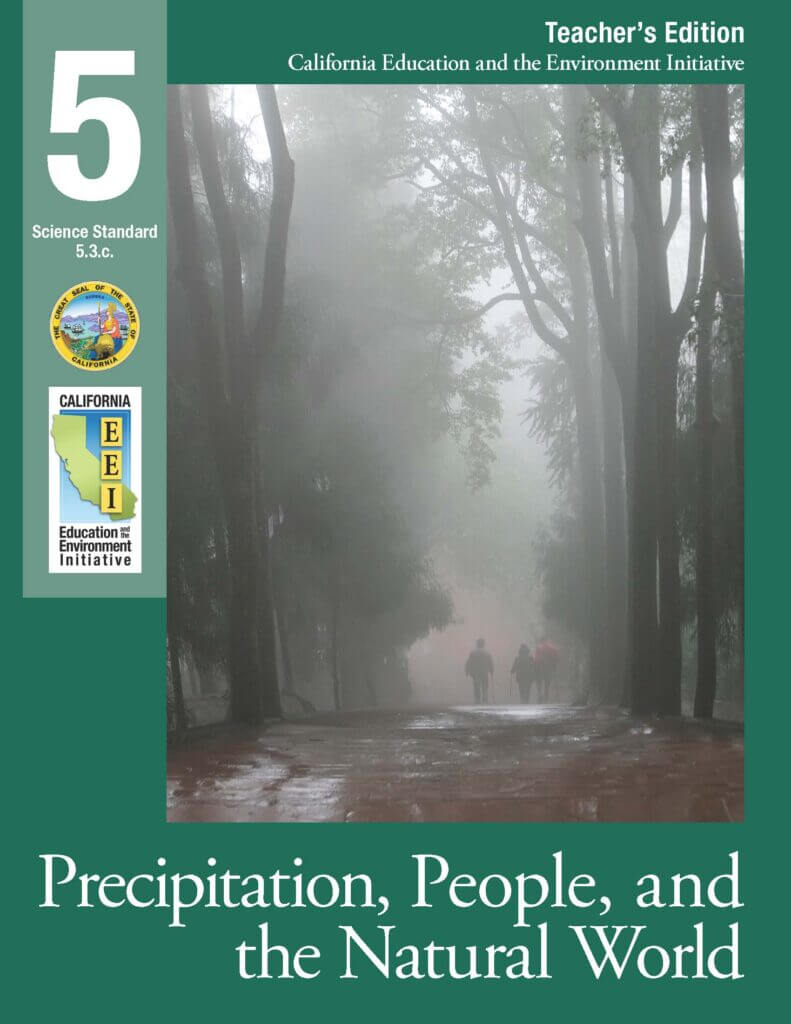
A rich variety of ecosystems in California depend on different natural precipitation patterns for their proper functioning.
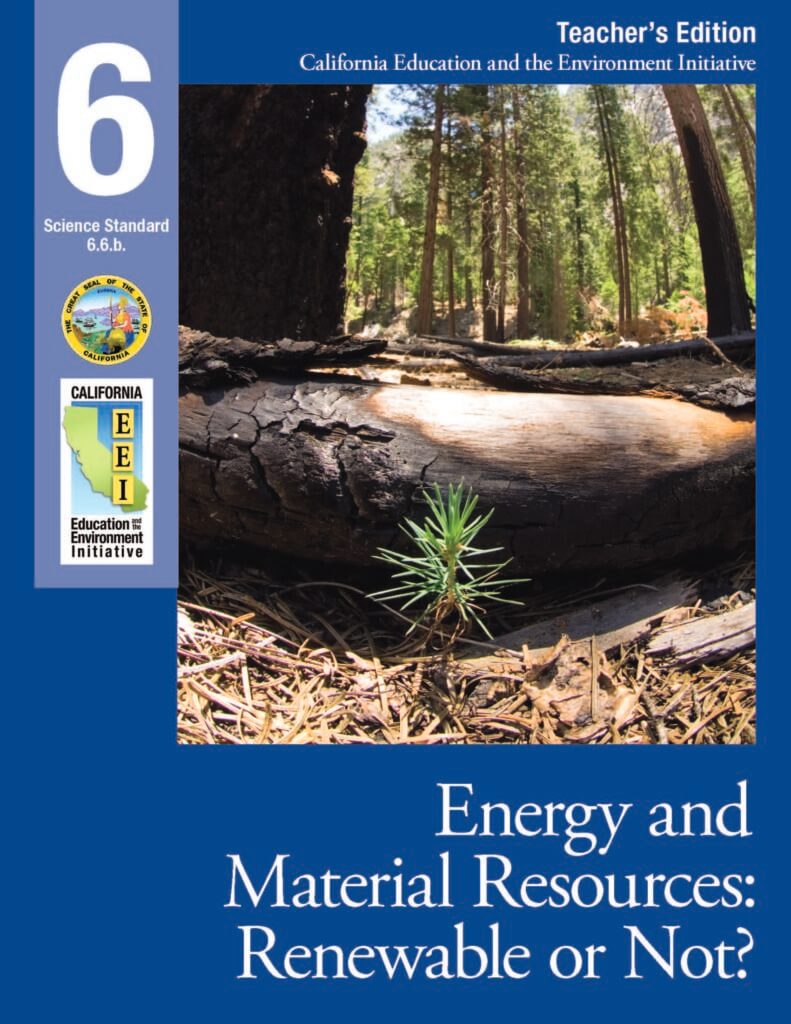
Learn about the different ways in which natural resources may be categorized as renewable, nonrenewable, or inexhaustible, and evaluated as commodities.
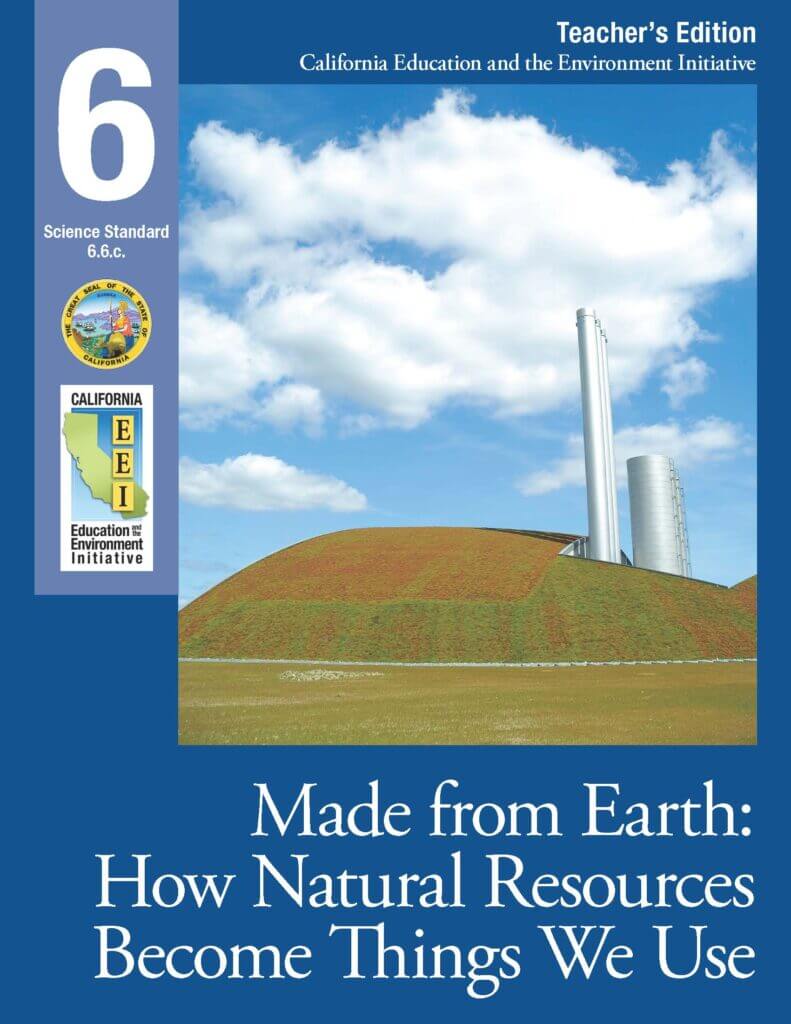
This unit teaches students about the importance of natural resources to their personal lives.
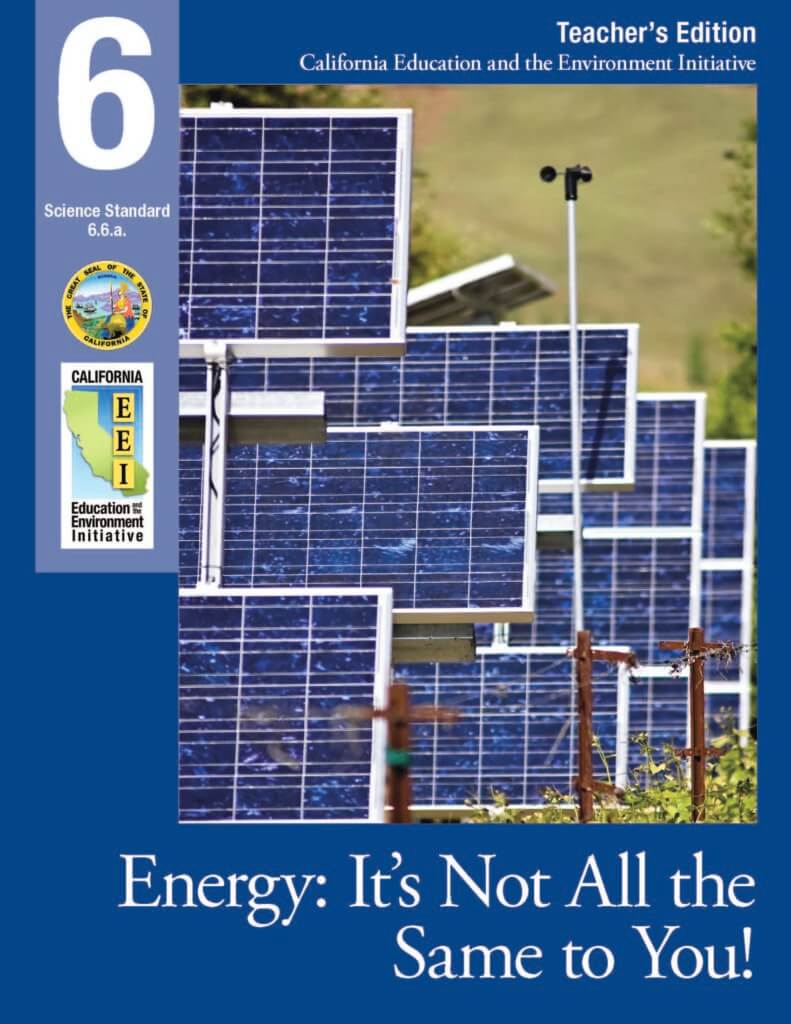
Explore the current energy sources used by California utility companies to provide electricity.
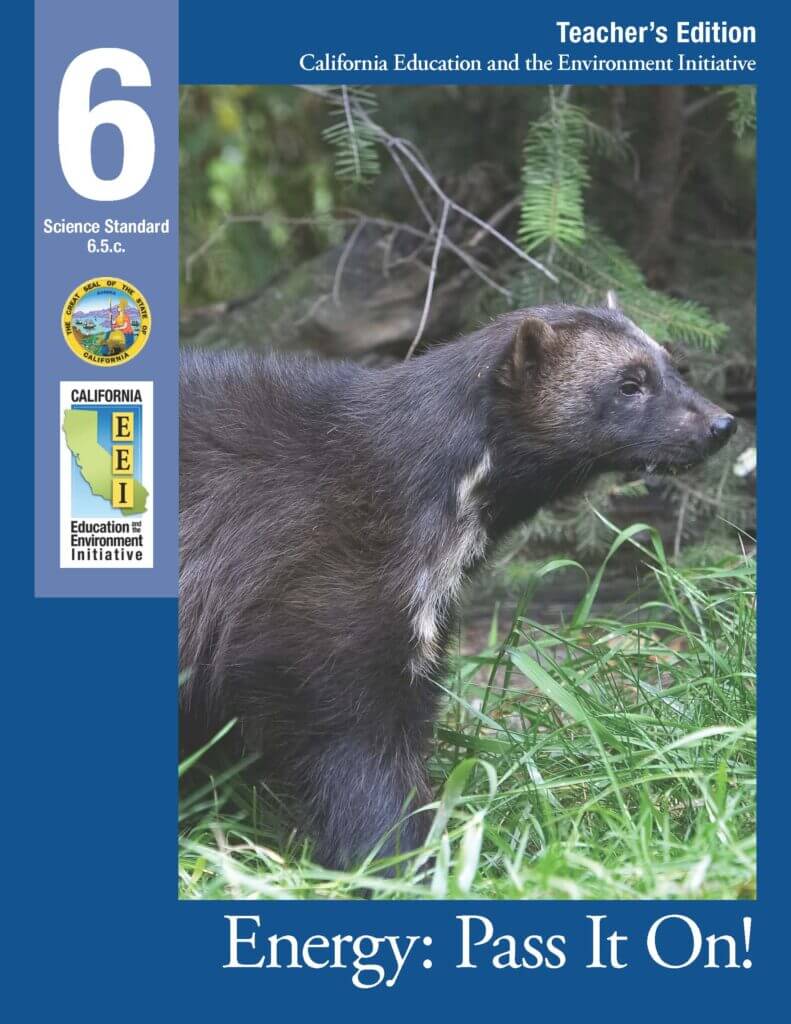
All living things, including humans, depend on both the physical environment and the interactions among organisms.
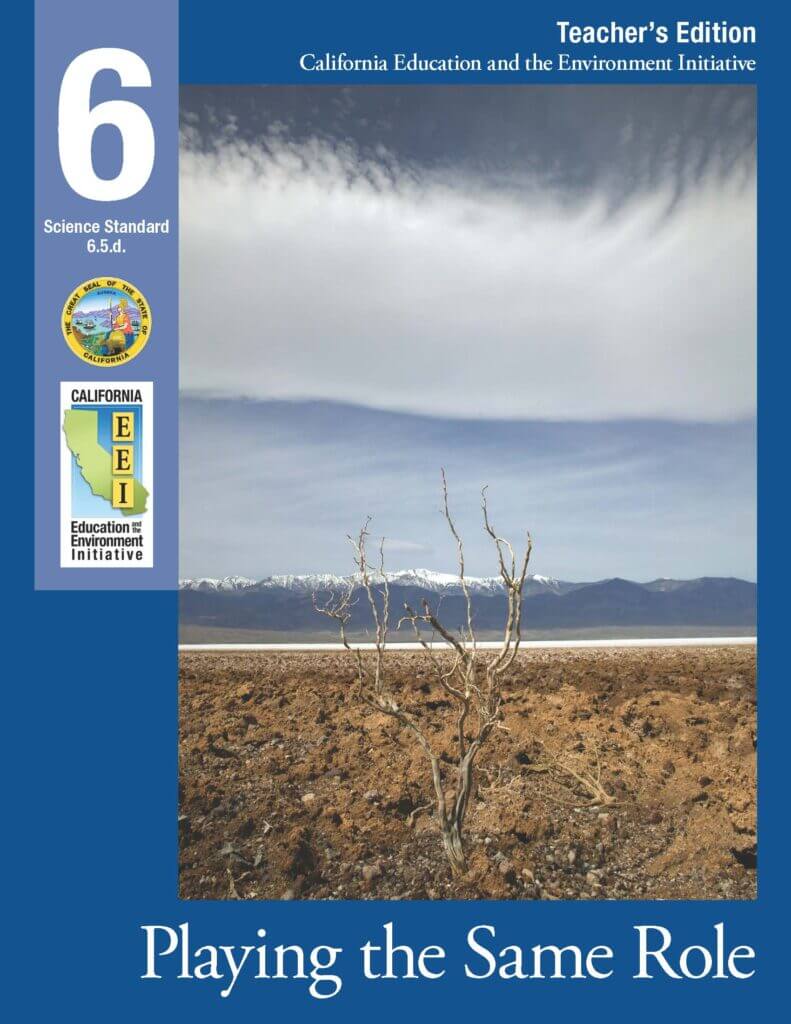
Students learn about the roles organisms play in ecosystems within a new context, biomes.
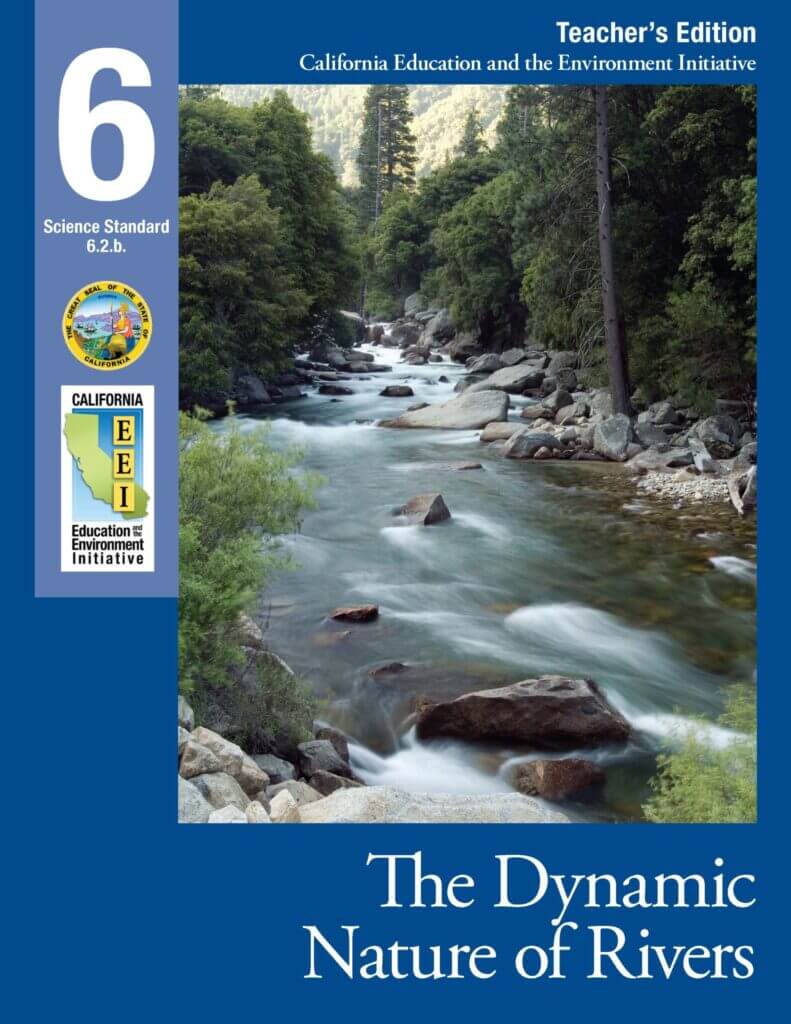
Rivers move materials within a watershed and particular locations have been found throughout history to be more suitable for habitation than others.
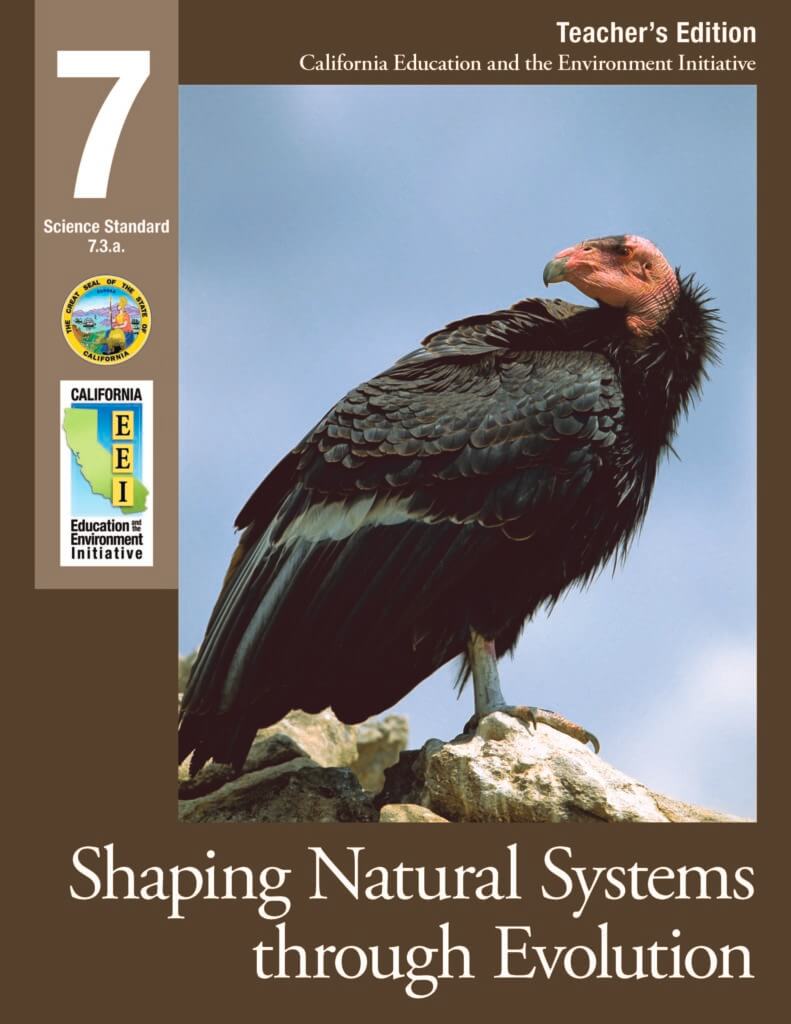
Changing environmental factors affect evolution and diversity of organisms (in terms of genetic variation and natural selection).
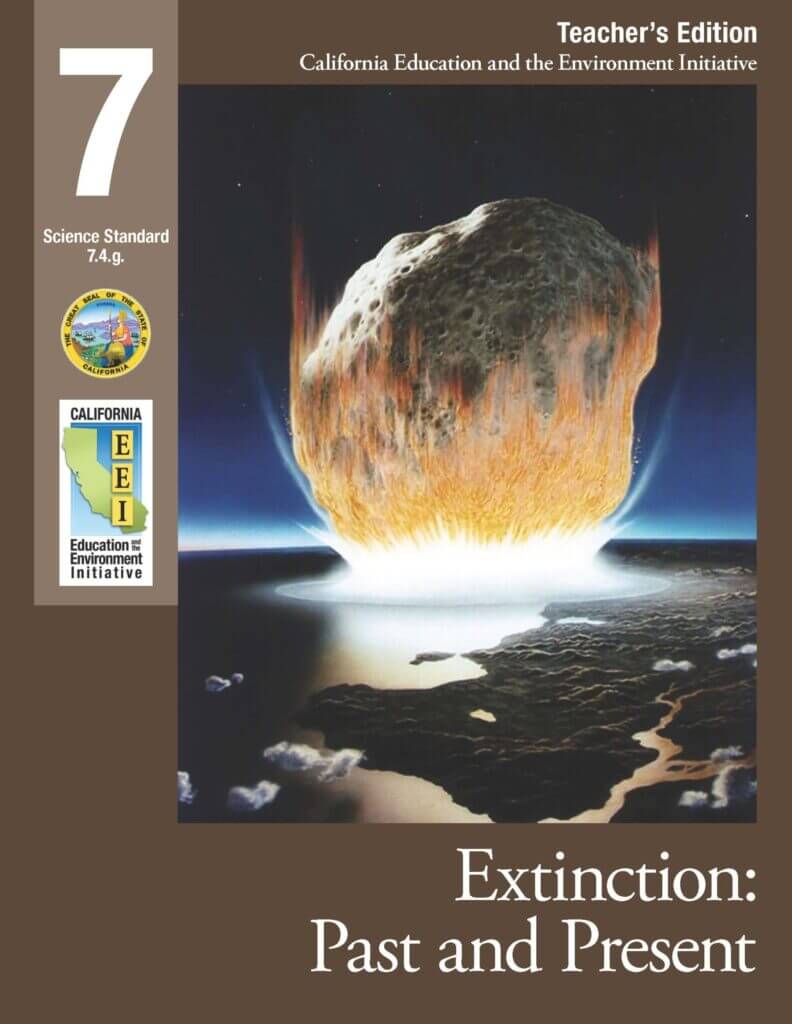
Explore how rates of extinction have varied in geologic time and that our own current extinction rates eclipse those of the past.
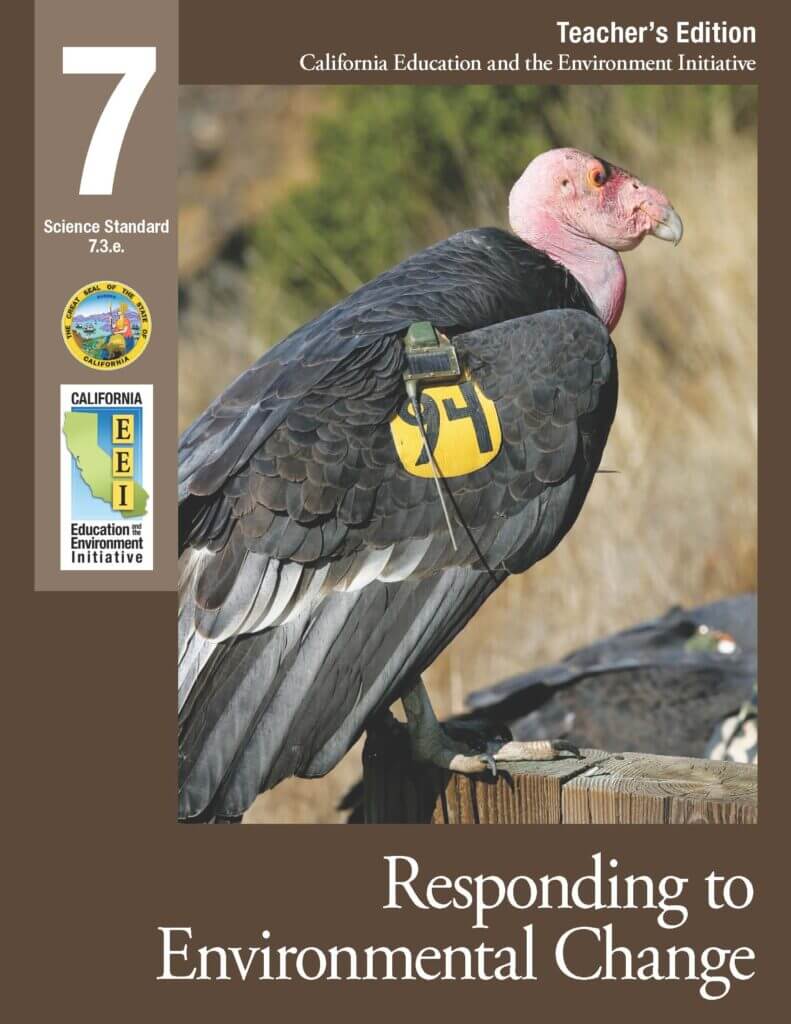
Students examine the role that humans play in the process of environmental change and review the process of adaptation in evolution.
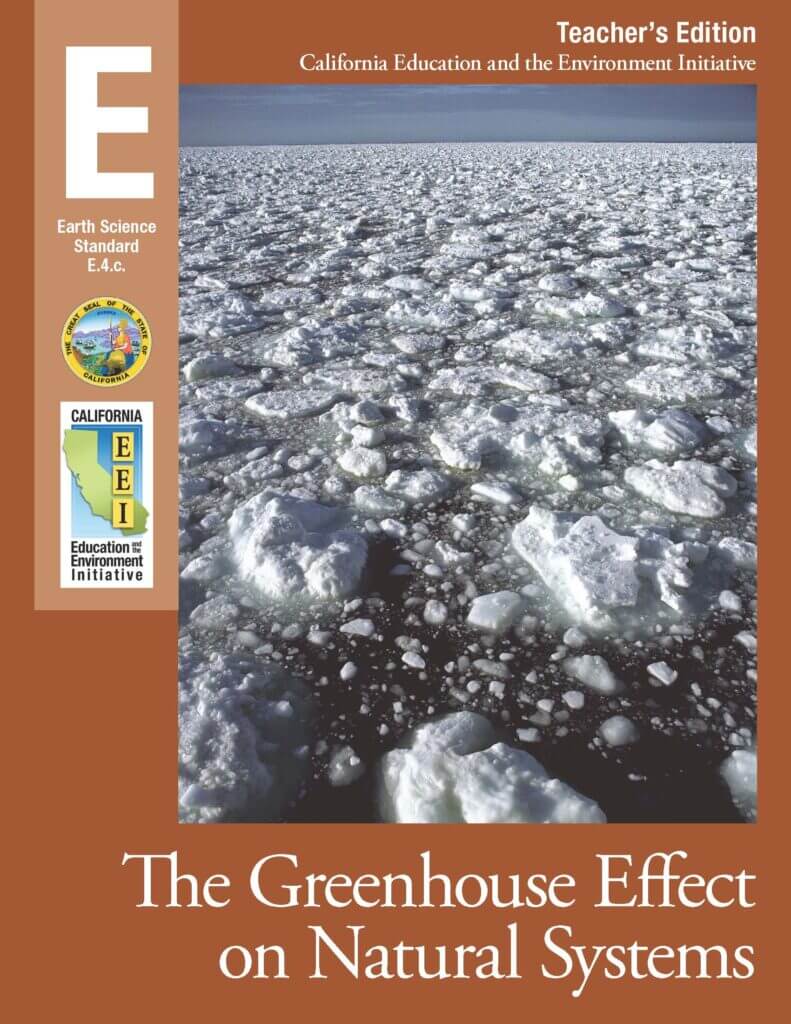
Explore Earth’s natural “greenhouse effect” and how this mechanism creates a climate that sustains life.
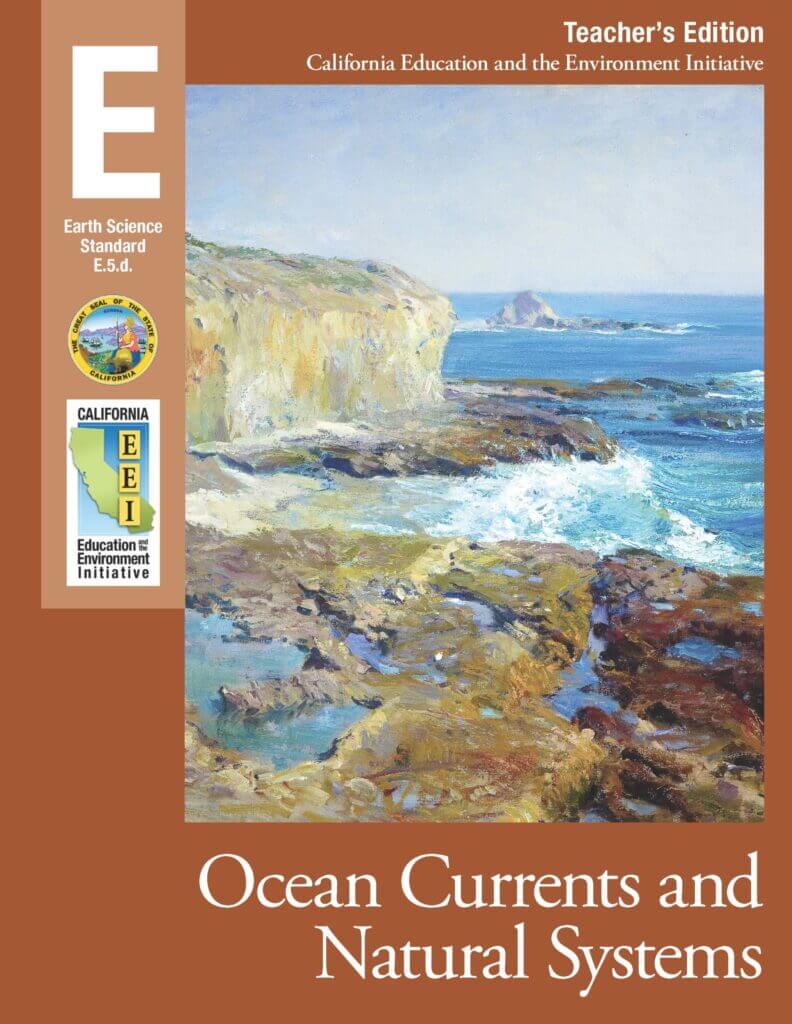
This unit guides students in examining the correlation between the physical, chemical, and biological world.
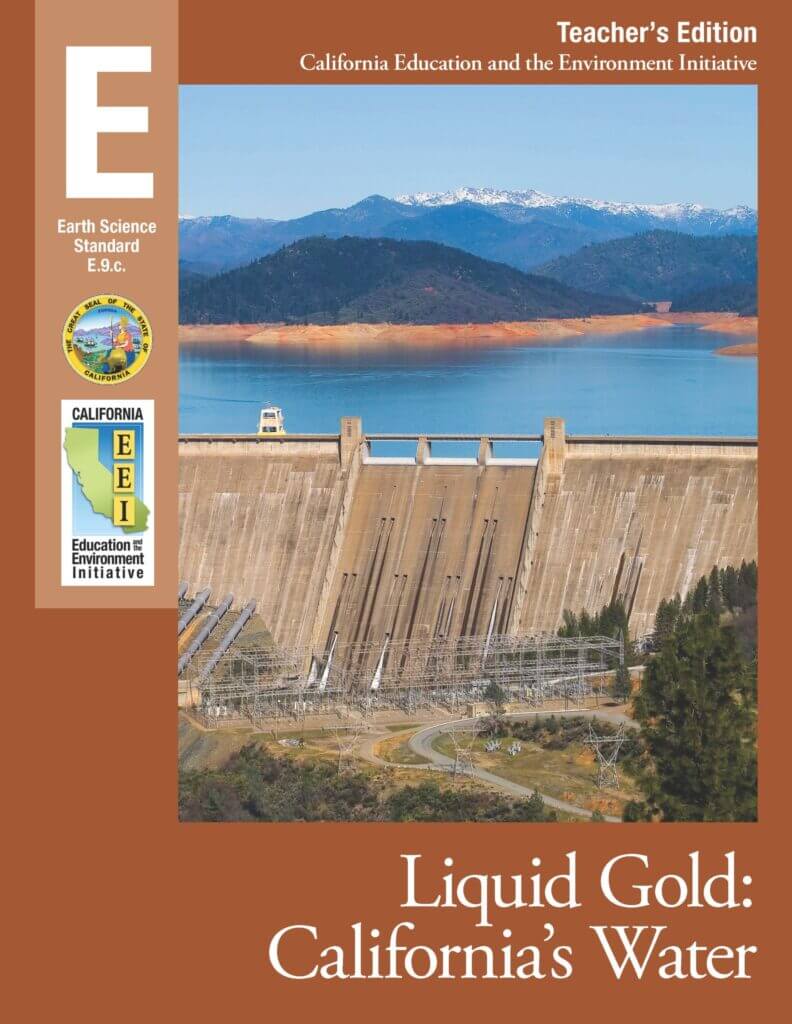
This unit teaches students how water is distributed and managed as a natural resource.
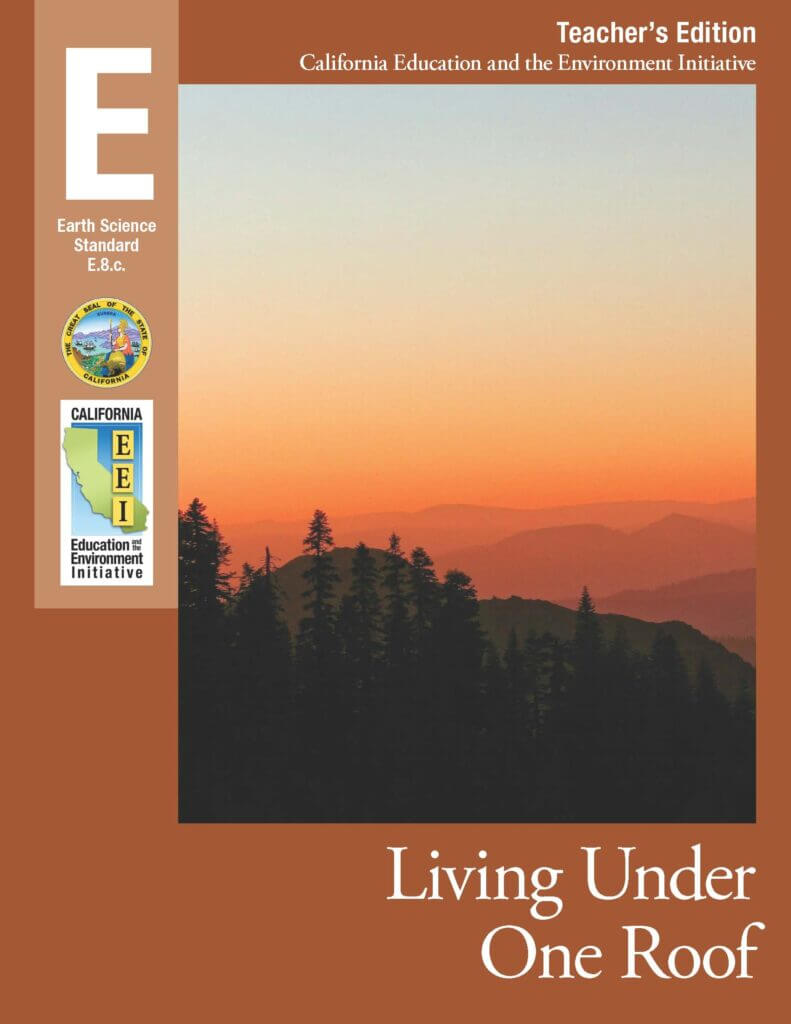
Students develop an understanding of Earth’s ozone layer and the role it serves in absorbing ultraviolet (UV) radiation.
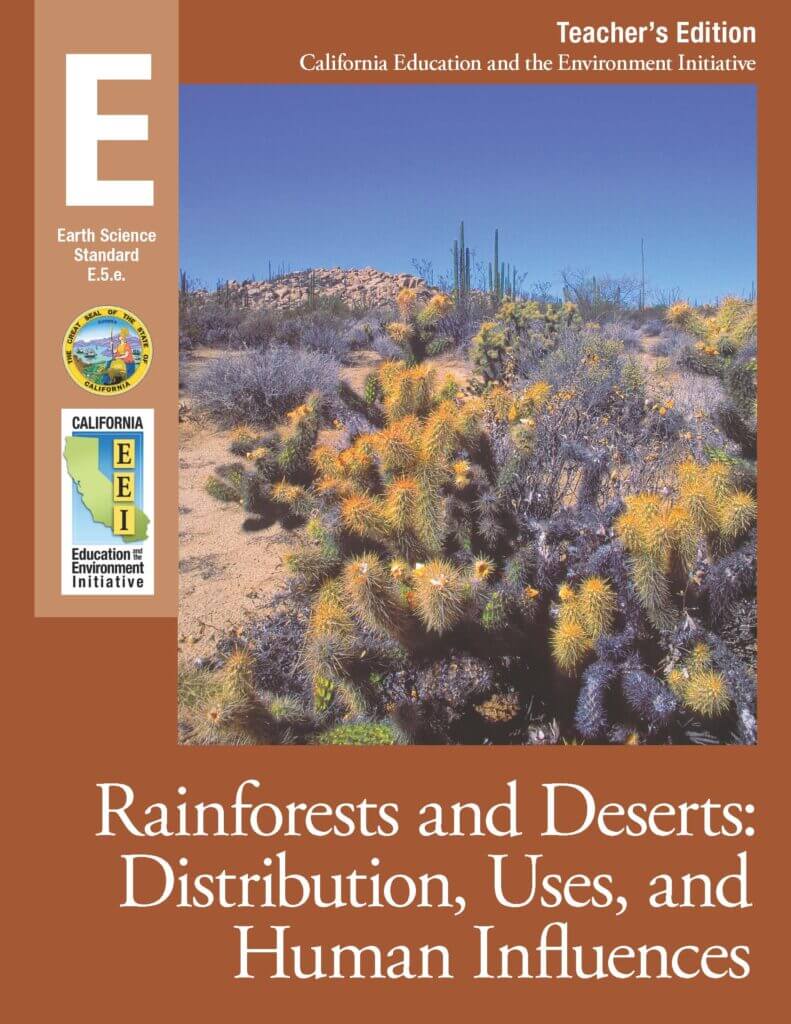
Students investigate the role of atmospheric convection currents in determining the geography of deserts and rainforests.
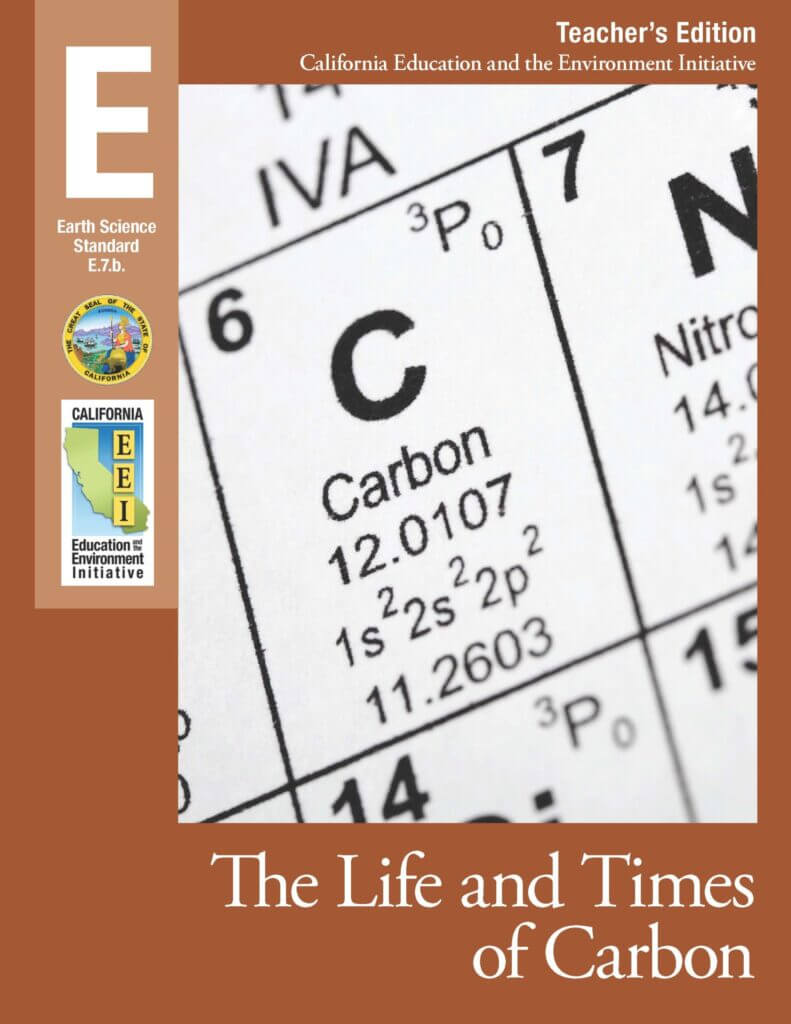
Examine Earth’s various carbon reservoirs (atmosphere, oceans, organisms/biomass, coal and oil deposits).
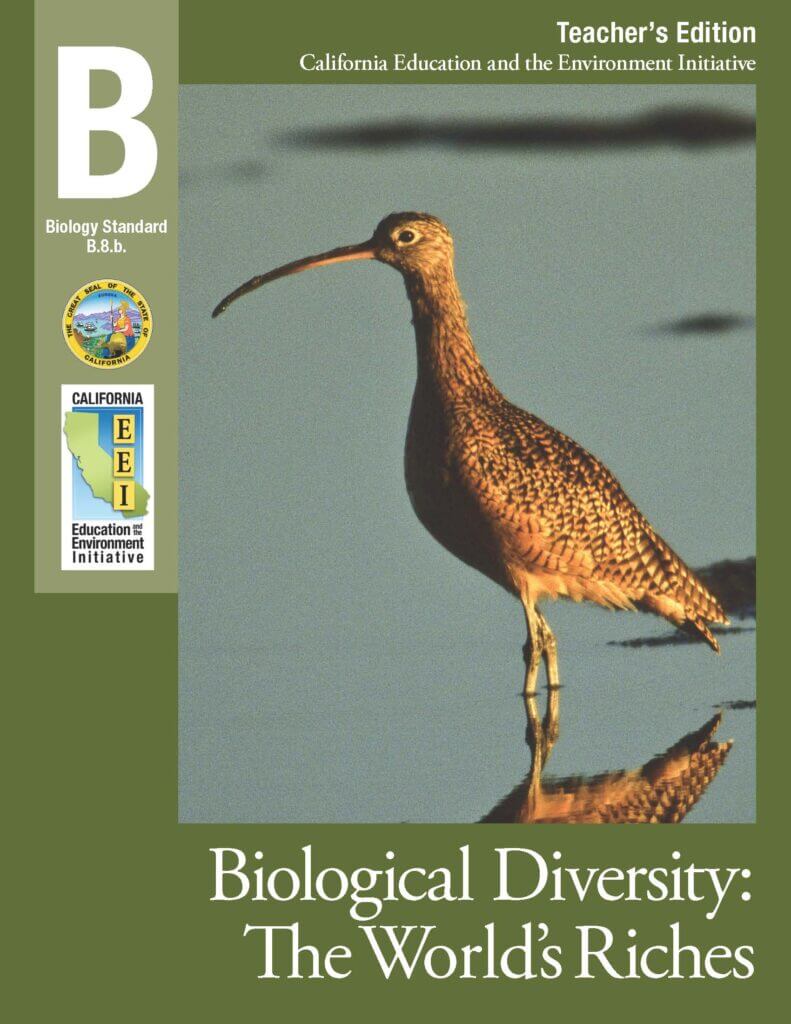
This unit examines how biological diversity within an ecosystem influences the chances that species will survive after major changes in the environment.
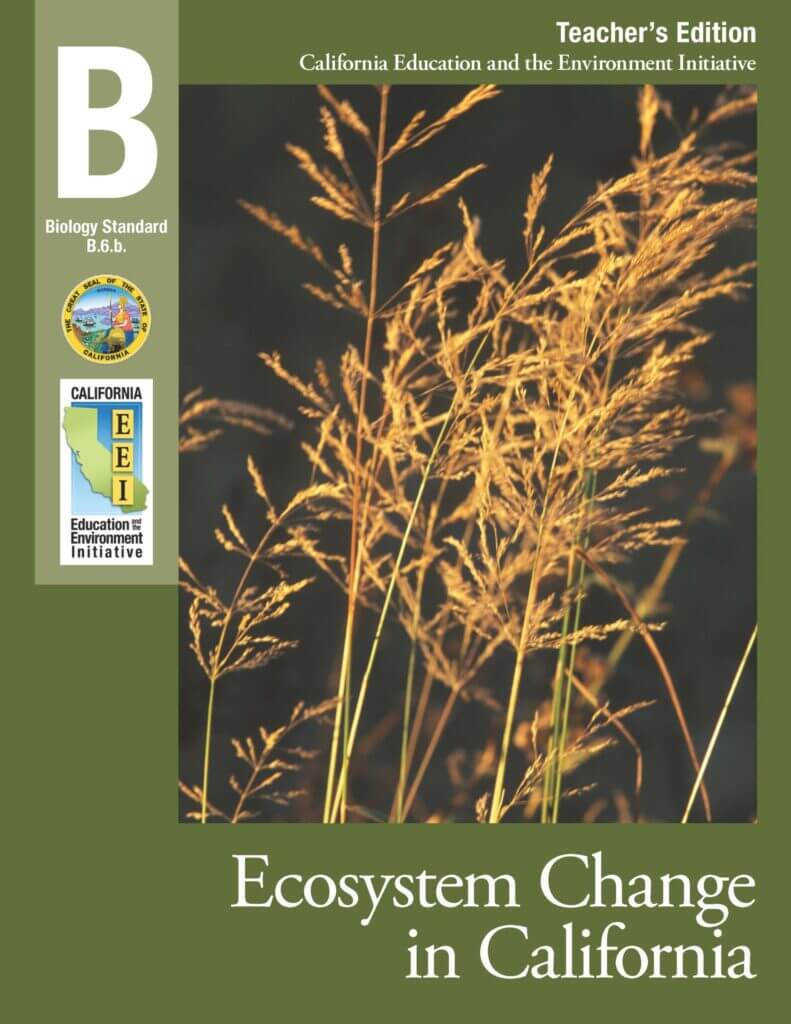
California grasslands have changed over time as the result of a combination of natural and human-related causes.
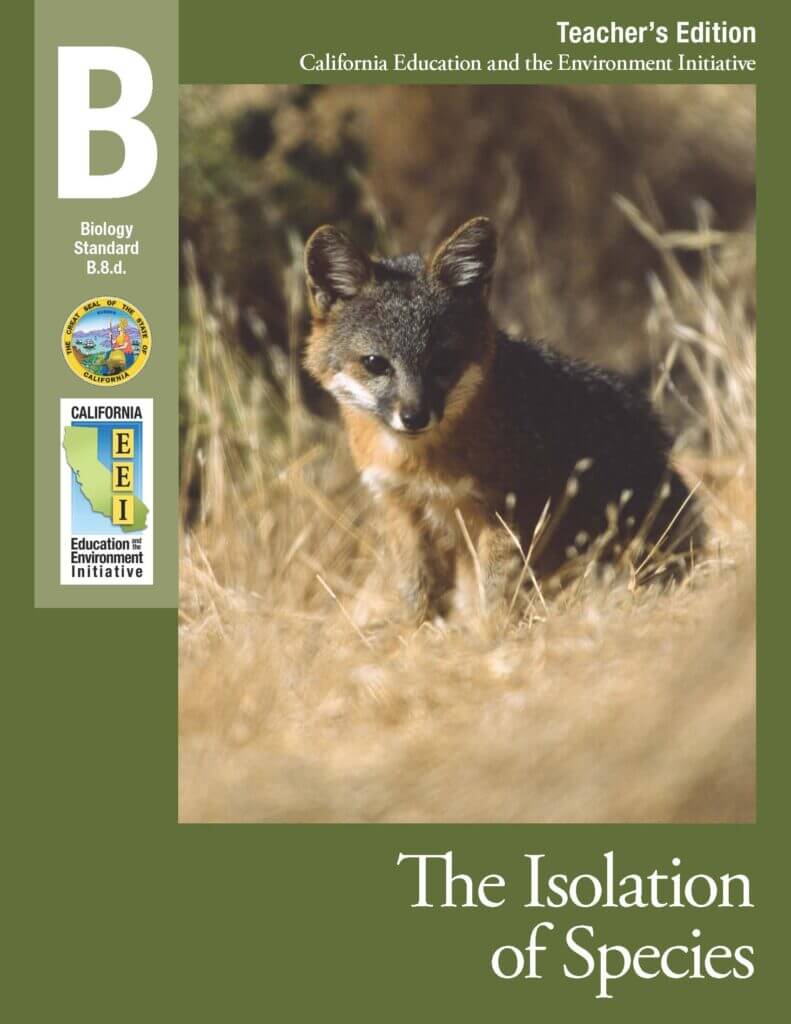
Reproductive and geographic isolation play major roles in the evolution of animal species.
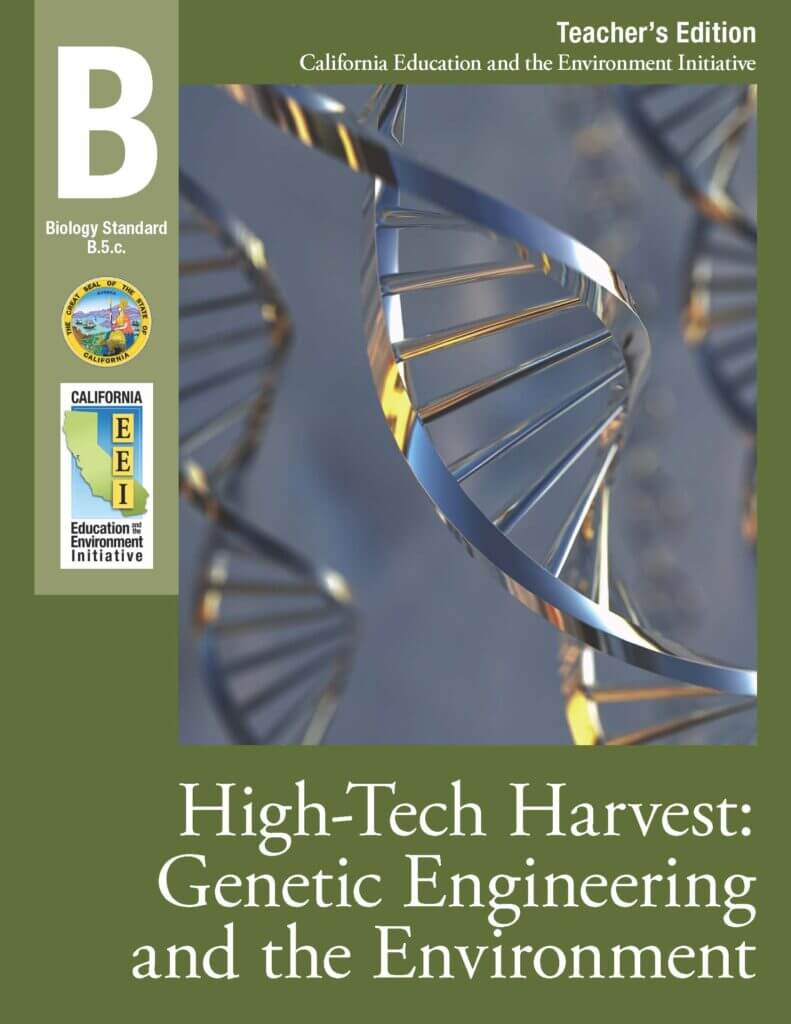
Explore the ways genetic engineering can influence natural systems and human health as a basis for analyzing the implications of genetic engineering.
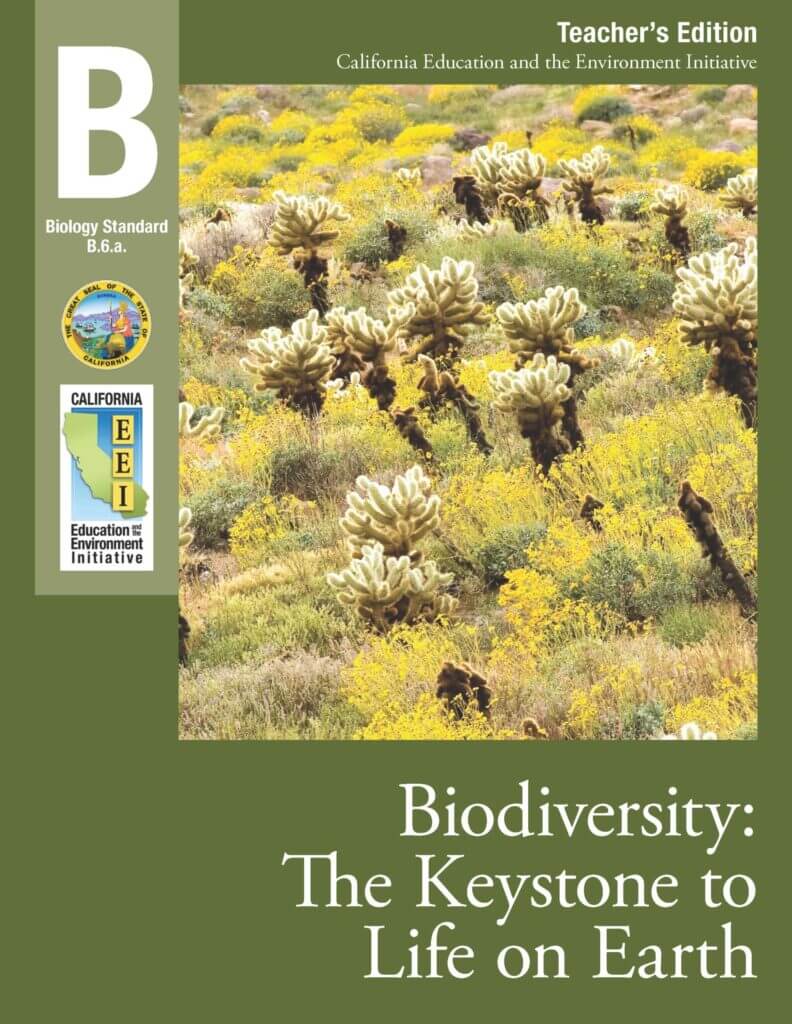
The biodiversity represented by healthy natural ecosystems is the basis for the ecosystem goods and services that are required for human survival.
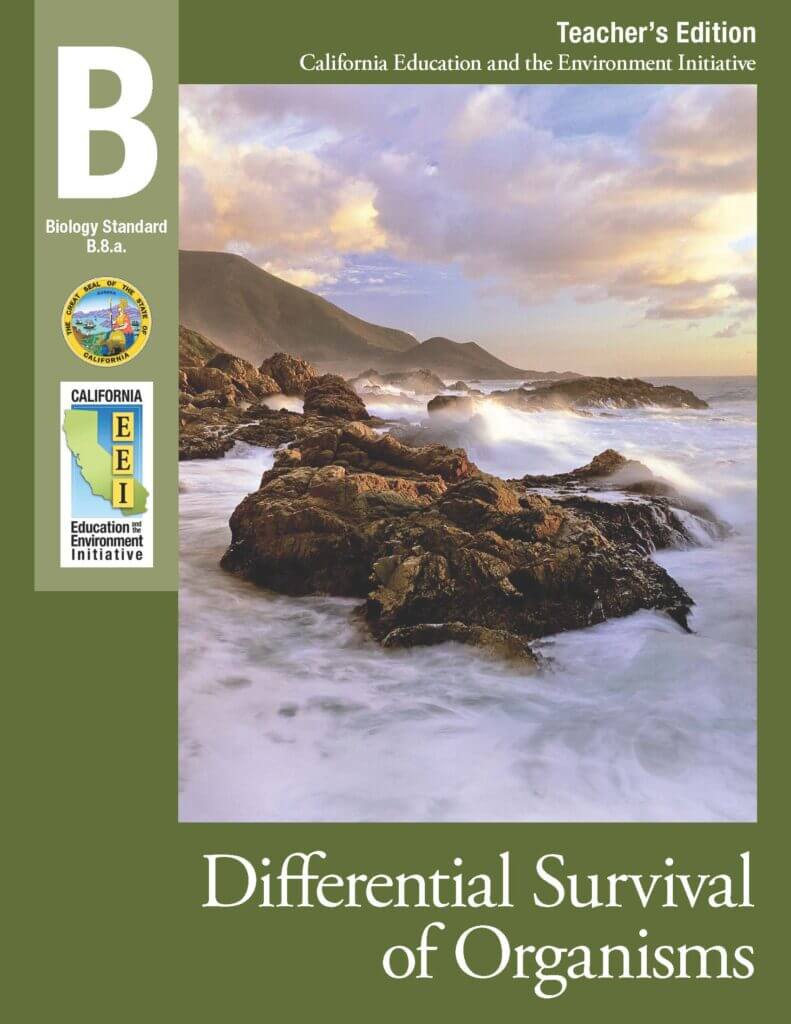
Natural selection determines the differential survival of groups of organisms.
"*" indicates required fields
Copyright © 2024 Ten Strands